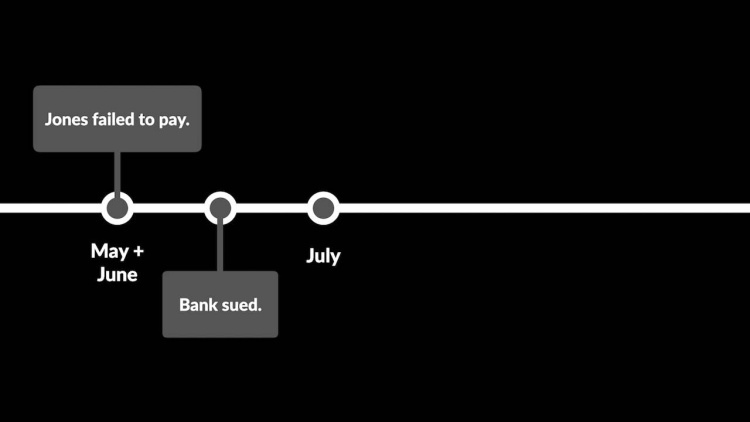Jones v. Morris Plan Bank of Portsmouth
Virginia Supreme Court of Appeals
191 S.E. 608 (1937)

- Written by Sean Carroll, JD
Facts
William Jones (plaintiff) bought a car from J.A. Parker (Parker), with the sale amount payable in 12 monthly installments. The note, however, contained a clause stating the following: “The whole amount of this note (less any payments made hereon) becomes immediately due and payable in the event of nonpayment at maturity of any installment thereof.” Parker assigned the contract to the Morris Plan Bank of Portsmouth (bank) (defendant), which, as part of the contract, was to hold the title of the car until Jones paid in full. When Jones failed to pay in May and June, the bank brought suit for those months’ payments, and Jones paid. Then, when Jones failed to pay again in July, the bank brought suit again for that month’s amount. In response, Jones filed a plea of res judicata, which resulted in nonsuit. The bank then took possession of the car from Jones without his consent and sold it. Jones brought this suit against the bank for conversion of his car. Jones based the suit on the theory that when he failed to make the May and June payments and the bank elected to collect only those payments rather than the full amount, as had been provided for in the note, the bank waived its chance to collect the remainder of the monthly installments. After Jones had presented all of his evidence, the bank filed a motion to strike the evidence. The trial court granted the motion and entered judgment for the bank. Jones appealed.
Rule of Law
Issue
Holding and Reasoning (Gregory, J.)
What to do next…
Here's why 899,000 law students have relied on our case briefs:
- Written by law professors and practitioners, not other law students. 47,000 briefs, keyed to 994 casebooks. Top-notch customer support.
- The right amount of information, includes the facts, issues, rule of law, holding and reasoning, and any concurrences and dissents.
- Access in your classes, works on your mobile and tablet. Massive library of related video lessons and high quality multiple-choice questions.
- Easy to use, uniform format for every case brief. Written in plain English, not in legalese. Our briefs summarize and simplify; they don’t just repeat the court’s language.






